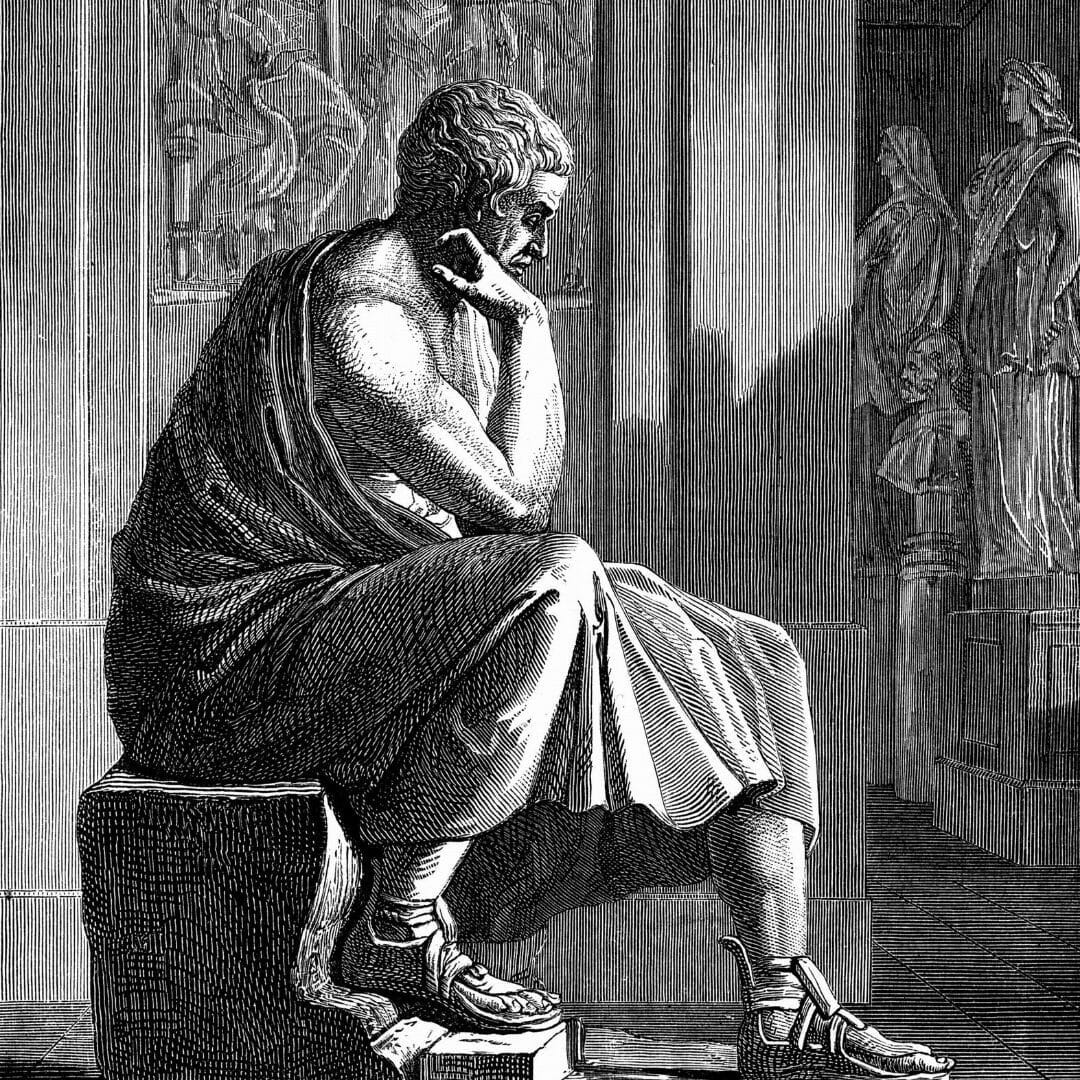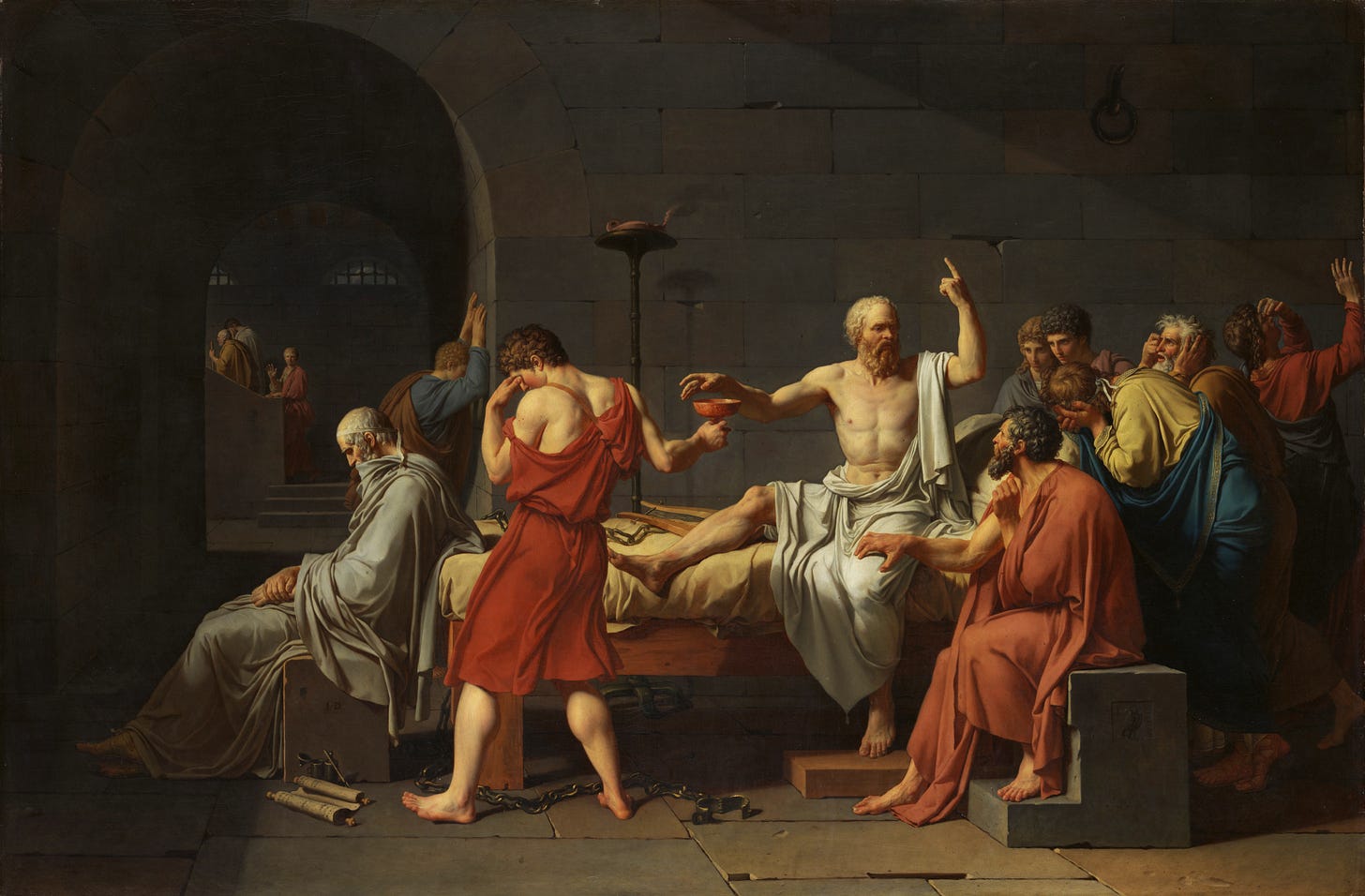We often talk about being “happy” as the goal of life.
But what does that actually mean?
The consumerist culture we live in pushes us toward a vision of happiness as “endless pleasure,” with addictive social media platforms encouraging us to buy a new product that the algorithm thinks we might want. Click, buy, and repeat.
We wrote about the problems posed by this conception of happiness in a previous Daily Concept newsletter about the hedonic treadmill.
But for the ancient Greeks, there was a richer concept for understanding & achieving “the good life”: eudaimonia.
It’s often translated as “happiness,” but that’s misleading.
A better translation might be “human flourishing.”
And recently, moral philosophers & psychologists have been re-visiting the idea of eudaimonia.
The researchers who developed the Questionnaire for Eudaimonic Well-Being came up with six dimensions of eudaimonia:
self-discovery;
perceived development of one's best potentials;
a sense of purpose and meaning in life;
investment of significant effort in pursuit of excellence;
intense involvement in activities; and
enjoyment of activities as personally expressive.
An ancient Greek dictionary of philosophical terms written by students at Plato’s Academy defined eudaimonia as:
“The good composed of all goods; an ability which suffices for living well; perfection in respect of virtue; resources sufficient for a living creature.”
In his Nicomachean Ethics, Aristotle observed that everyone agrees that eudaimonia is the highest good for mankind, but that people disagree on what it actually entails.
For the average person, it could mean:
“some plain and obvious thing like pleasure, wealth or honor.”
In the Apology, Socrates offers a criticism of an Athenian man who has embraced this shallow understanding of eudaimonia:
“Good Sir, you are an Athenian, a citizen of the greatest city with the greatest reputation for both wisdom and power…
Are you not ashamed of your eagerness to possess as much wealth, reputation, and honors as possible, while you do not care for nor give thought to wisdom or truth or the best possible state of your soul?”
Eudaimonia is about cultivating the soul and becoming the best version of ourselves.
This is more than just a cliche. We can achieve this by:
focusing on developing our positive traits
working toward valuable personal goals, and
supporting those around us
Aristotle and others looked to the idea of “aretē” (or “virtue'“) as the values necessary to live a eudaimonic life.
The idea of cultivating “virtue” is key to understanding eudaimonia, and the philosophy of virtue ethics is focused on understanding:
Which virtues are important, and
How can we cultivate these virtues?
Virtue can be defined simply as “behavior showing high moral standards,” but I like this definition from the Stanford Encyclopedia of Philosophy’s page on virtue ethics:
“A virtue is a trait that contributes to or is a constituent of eudaimonia and we ought to develop virtues, the eudaimonist claims, precisely because they contribute to eudaimonia.”
In Aristotle's Rhetoric, he lists the most important virtues:
The forms of Virtue are justice, courage, temperance, magnificence, magnanimity, liberality, gentleness, prudence, wisdom.
I will conclude with one of the most essential features of eudaimonia:
The pursuit of eudaimonia never ends.
We are never at our “best” — even when we are better than before, there is always more room for improvement.
We can all agree that living just for pleasure leads to an empty and unhappy life.
But to go beyond that, we must look within ourselves to find the values and goals that truly matter — not just in the moment, but across a lifetime.
Eudaimonia invites us to treat life as a long & evolving practice of growth, reflection, and striving toward our highest potential.
It doesn’t offer quick rewards or guaranteed satisfaction, but it does offer something deeper: a sense of integrity, purpose, and the confidence that we are becoming who we’re meant to be.
And that, perhaps, is the good life.










